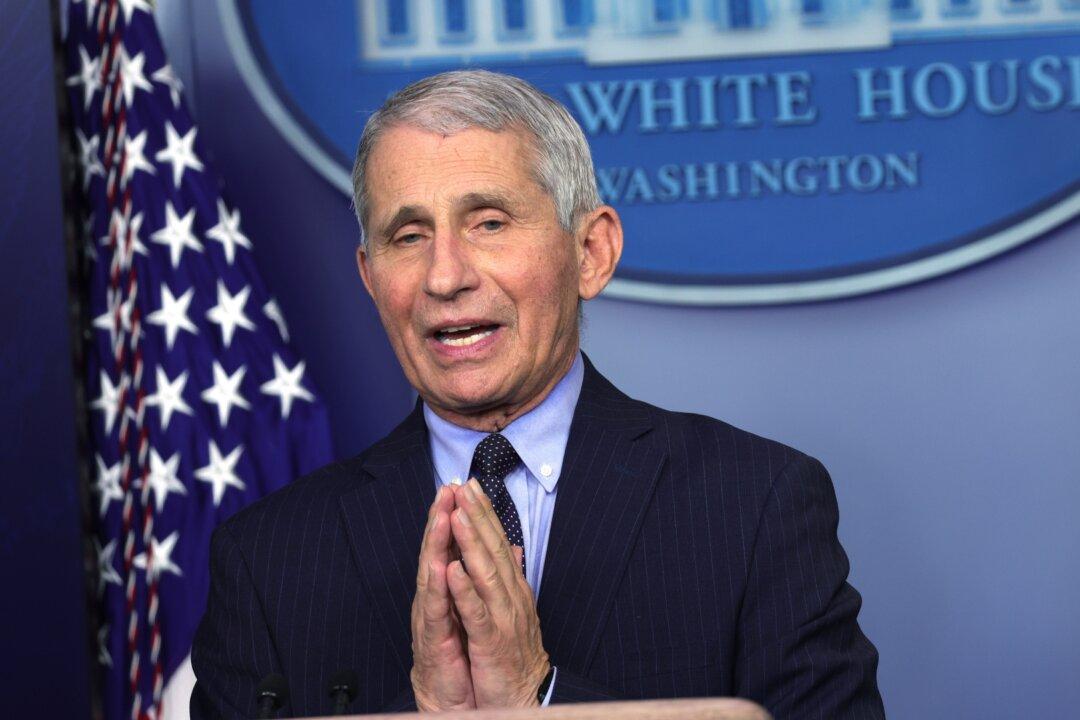Infectious disease expert Dr. Anthony Fauci said Wednesday that the rollout of the CCP virus vaccine in the United States must account for racial disparities.
Fauci, the director of the National Institute of Allergy and Infectious Diseases, said in an interview with the New England Journal of Medicine on Wednesday, that the distribution of vaccines for COVID-19, the disease caused by the CCP (Chinese Communist Party) virus, must consider how disproportionately the virus impacts people of color.





